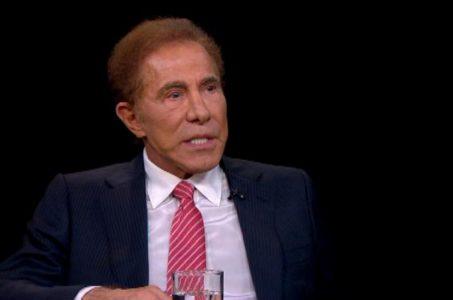Oregon Tribes Seek to Sink Coffee Magnate’s Gambling Plan for Grants Pass Downs
Posted on: October 12, 2021, 06:37h.
Last updated on: October 12, 2021, 02:24h.
A coffee magnate who hopes to open a gambling and entertainment center at the Grants Pass Downs racetrack in southern Oregon is facing the wrath of six regional tribal operators, Oregon Live reports.

Travis Boersma is the state’s newest billionaire, after his coffee chain, Dutch Bros, raised $500 million in an IPO in September. The Grants Pass native owns the racetrack and hopes his planned “Flying Lark” gambling center will transform his hometown into a national epicenter of racing.
The Flying Lark, named for a famous Oregon thoroughbred, will have 250 historical horseracing terminals, a sports bar, a family restaurant, and a banquet area. The terminals resemble slots but allow players to bet on replays of past races, with the identities of those races obscured.
Smell the Coffee
But an alliance of tribes last week asked Gov. Kate Brown (D) to rigorously examine Boersma’s plans, saying they will fundamentally alter gambling in the state to the detriment of tribal casinos. The tribes also want a comprehensive review of gambling in Oregon, noting it has been 25 years since that last was undertaken.
Signatories to the letter include the Cow Creek Band of Umpqua Tribe of Indians, which operates the Seven Feathers Casino Resort in Canyonville, 40 miles north of Grants Pass.
Historical horse racing machines have been legal in Oregon since 2012, but only at racetracks. Following the demise of Portland Meadows in 2019, Grants Pass is the only commercial horse racetrack currently in operation in the state.
The machines are legal because they broadly use the pari-mutuel betting system permitted at racetracks, although the tribes dispute this. They claim the newest generation of machines have evolved beyond the pari-mutuel system to the point where they are “nothing other than slot machines, from a player perspective.”
In Oregon, the tribes hold exclusivity on slots and casino gaming under the terms of their compacts. They feel this right is being threatened, not only by historical horse racing but also by mobile sports betting, available since 2019.
“The state’s regulatory framework has not evolved to reflect new technology or its impacts on the public,” the tribes wrote. “We are at a critical moment where the state is about to approve the largest expansion of state-regulated gambling in decades without public or legislative input.”
Tiny Agency
Brown has previously said she would defer to the Oregon Racing Commission on the issue of the Flying Lark’s gaming terminals. But the tribes argue this tiny agency, which employs just ten people, is ill-equipped to regulate the modern gaming market.
Meanwhile, the Flying Lark plans to open this fall, regulators permitting.
In a recently published economic impact study, its owner claimed the center and its racetrack will generate $10.7 billion in net new spending in Oregon, create 2,007 net new full-time jobs, and pay $361.9 million in tax over the next 30 years.
Related News Articles
$5 Billion Pinnacle Entertainment Takeover Is Odds On
Steve Wynn Reportedly Interested in Building North New Jersey Casino
PointsBet Could Be Ideal Sports Betting Takeover Target
Caesars Could Bid for Flutter Following UK Whitepaper Release
Most Popular
Mega Millions Reportedly Mulling Substantial Ticket Price Increase
NoMad Hotel to Check Out of Park MGM on Las Vegas Strip
VEGAS MYTHS BUSTED: To ‘86’ Someone Was Vegas Mob Slang for Murder
Most Commented
-
End of the Line for Las Vegas Monorail
— April 5, 2024 — 90 Comments -
Mega Millions Reportedly Mulling Substantial Ticket Price Increase
— April 16, 2024 — 8 Comments -
Long Island Casino Opponents Love New York Licensing Delays
— March 27, 2024 — 5 Comments
















Last Comments ( 4 )
In California, tribes have a lock on gaming. If slots were allowed at race tracks like other states, purse money for horse racing would increase and field size would also increase. California racing is suffering because of field size which too often involves 6 horse fields. Larger purses generated from slot machines would attract more entries and would help offset the costs, which in California are considerable. But the tribes have a strong lobby against slot competition
So it's ok for one commercial agency ( the tribes) to hold gambling rights, but not another, which could equally pump money and job's back into the State? No, allow The Flying Lark and historical racing!
They act like they want a piece of the action, or all the action pushed through their casinos. Those machines are nothing but thief's in disguise. The tribes have those machines so tight, you'd have to spend a million and you might break even. Percentages are you'll walk away empty handed. And whatever you do, stay away from their gift shop. Unless you'd like to be falsely charged for stealing merchandise. Maybe they need to take a closer look at those situations, instead of being distracted off of them by these pitiful headlines...
Governor Brown! Please honor the right of the Oregon tribes to have a voice in the approval or rejection of these new betting machines that Boersma is setting up near Grants Pass. By refusing to at least slow walk this process, you are betraying your commitment to fair treatment of the tribes. A commitment that has historically been more honored in the breach than the practice. You are the only backstop between Boersma and his cozy bunkmates at the Oregon Racing Commision.